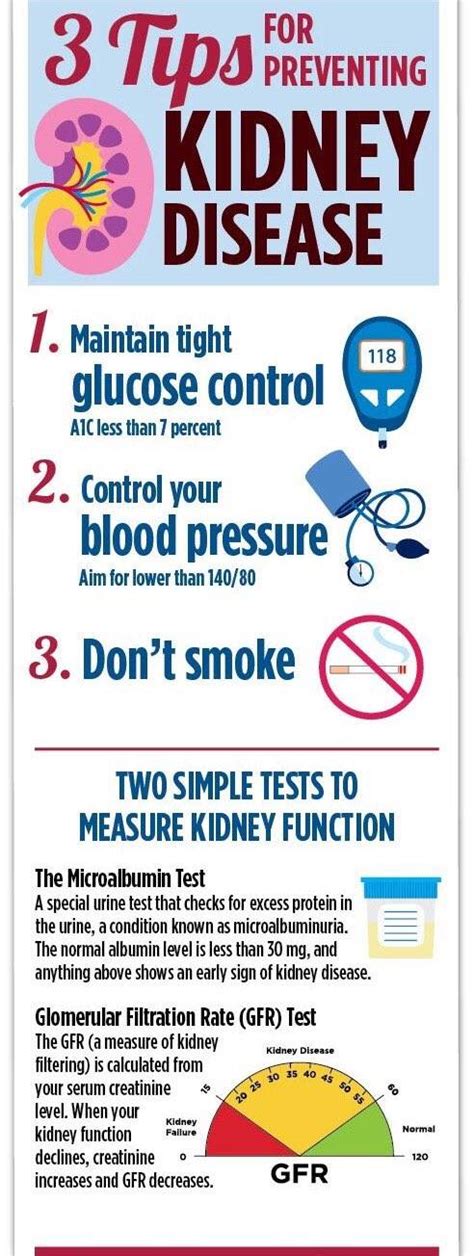How to Avoid Kidney Disease: A Comprehensive Guide to Protecting Your Renal Health
Kidney disease is a serious health concern affecting millions worldwide. Understanding the risk factors and implementing preventative measures is crucial for maintaining healthy kidneys and overall well-being. This comprehensive guide will equip you with the knowledge and strategies to significantly reduce your risk of developing kidney disease.
Understanding Kidney Disease
Before diving into prevention, it's essential to understand what kidney disease entails. Your kidneys are vital organs responsible for filtering waste and excess fluid from your blood, maintaining electrolyte balance, and regulating blood pressure. Kidney disease, also known as chronic kidney disease (CKD), occurs when your kidneys are damaged and can't perform these functions effectively. This damage can be gradual and often goes unnoticed in its early stages.
Types of Kidney Disease
Several factors can contribute to kidney disease, leading to various types:
- Diabetic Nephropathy: High blood sugar damages the kidneys' blood vessels over time.
- Hypertensive Nephropathy: High blood pressure puts excessive strain on the kidneys, leading to damage.
- Glomerulonephritis: Inflammation of the glomeruli (filtering units in the kidneys).
- Polycystic Kidney Disease (PKD): A genetic disorder causing cysts to form in the kidneys.
- Interstitial Nephritis: Inflammation of the kidney tissue.
Key Strategies to Avoid Kidney Disease
Preventing kidney disease involves a multifaceted approach encompassing lifestyle modifications and regular health screenings. Here are some key strategies:
1. Manage Blood Sugar Levels
Diabetic nephropathy is a leading cause of kidney failure. Maintaining healthy blood sugar levels through diet, exercise, and medication (if necessary) is paramount. Regular blood glucose monitoring is crucial for individuals with diabetes.
2. Control Blood Pressure
High blood pressure significantly strains the kidneys. Regular blood pressure checks and adherence to prescribed medications are vital. Lifestyle changes like adopting a healthy diet and increasing physical activity can also significantly lower blood pressure. Hypertensive nephropathy is a serious risk.
3. Maintain a Healthy Weight
Obesity is linked to an increased risk of developing kidney disease. Maintaining a healthy weight through balanced nutrition and regular exercise reduces the strain on your kidneys and overall cardiovascular health.
4. Follow a Healthy Diet
A balanced diet low in sodium, saturated fats, and processed foods protects kidney health. Focus on consuming plenty of fruits, vegetables, whole grains, and lean proteins. Limit red meat consumption and processed foods high in phosphorus.
5. Stay Hydrated
Drinking plenty of water helps flush out waste products from your kidneys. Adequate hydration is crucial for optimal kidney function.
6. Don't Smoke
Smoking damages blood vessels throughout the body, including those in the kidneys. Quitting smoking significantly reduces your risk of kidney disease and improves overall health.
7. Regular Exercise
Regular physical activity improves overall health, including kidney function. Aim for at least 150 minutes of moderate-intensity aerobic exercise per week.
8. Take Medications as Prescribed
If you have underlying health conditions like diabetes or hypertension, strictly adhere to your prescribed medications. These medications play a crucial role in managing these conditions and preventing further kidney damage.
9. Regular Check-ups
Regular health screenings, including blood and urine tests, are vital for early detection of kidney disease. Early diagnosis allows for timely intervention and management, slowing down disease progression.
When to See a Doctor
If you experience symptoms like:
- Swelling in your feet, ankles, or legs
- Changes in urination patterns (increased or decreased frequency)
- Foamy urine
- Persistent fatigue
- Loss of appetite
- Nausea
- Itching
Consult a doctor immediately. Early detection and treatment are essential for managing kidney disease effectively.
By diligently following these strategies, you can significantly reduce your risk of developing kidney disease and maintain healthy, functioning kidneys for years to come. Remember, prevention is always better than cure.
